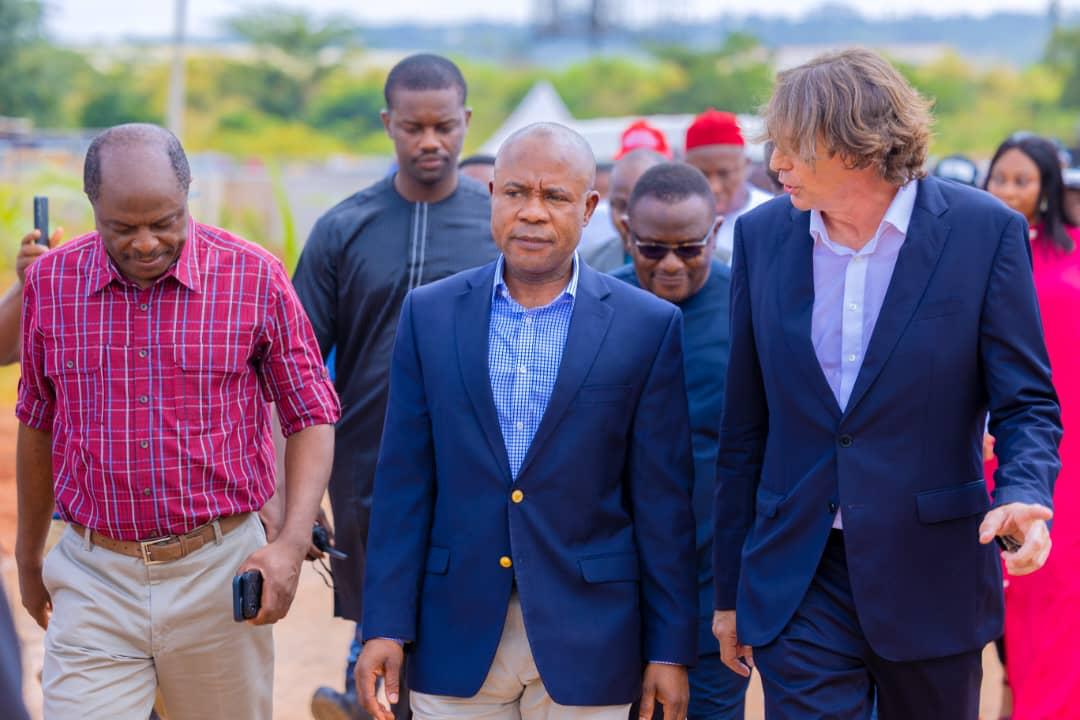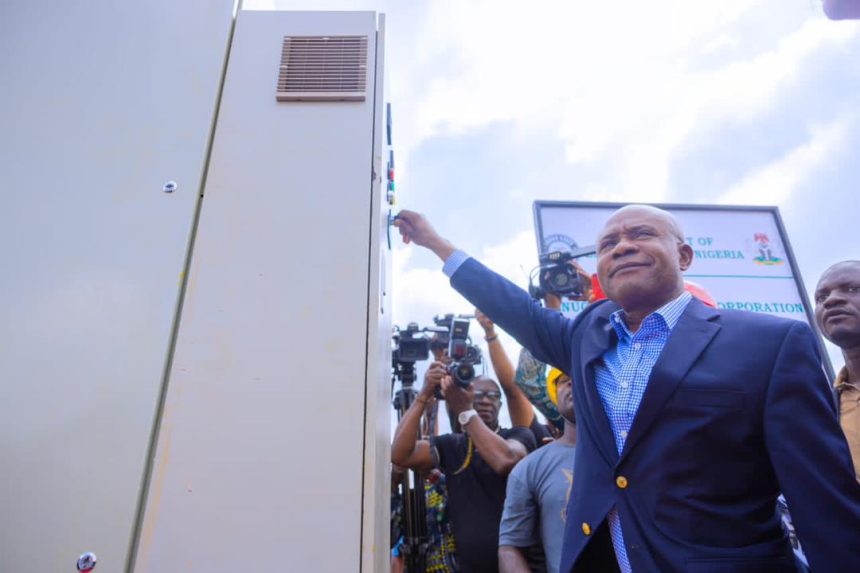…Builds 4.4MW gas plant to guarantee water supply
Governor of Enugu State, Dr. Peter Mbah, has commissioned a 70 million litre per day water project in Enugu, saying his administration had raised potable water production capacity from the occasional 2 million litres per day to 120 million litres per day.
Commissioning the project known as the 9th Mile 24/7 Water Scheme on Saturday in fulfillment of his campaign promise to restore water to Enugu city in 180 days from the date of his inauguration, Dr. Mbah explained that the 4.4mw gas-powered plant built by his administration to supply power at the scheme would ensure uninterrupted water supply to Enugu residents.

Regretting the dire water challenges faced by Enugu residents before now, he said availability of potable water was consequential to his administration’s vision to raise the state’s economy from $.4.4 billion to $30 billion GDP in four to eight years.
“It was clear to us, that the status of water supply at the time was deplorable. At that time, there had been no reliable water supply in most parts of Enugu State for almost 20 years.
“One need not be a rocket scientist to discern that few investors will be attracted to the state under such dire circumstances, nor can existing businesses expand to generate additional jobs and economic growth. If anything, these conditions are suffocating businesses and households and leading to unnecessary suffering across the State.
“Faced with this fundamental issue, and considering the suffering of Ndi Enugu, it was only natural that we identified provision of water as one of our first targets in the drive to execute our mandate and social contract with citizens of Enugu.
“We also chose to give ourselves a target of resolving this challenge in 180 days not for the purpose of chest-thumping but rather because first, the issue is urgent. We did not want Ndi Enugu to suffer unduly for even one minute longer than avoidable, and, second, we saw this as an opportunity to galvanize Ndi Enugu for the tough tasks ahead and whip our administration into gear as quickly as possible,” he said.
Mbah recalled that the promise to provide potable water within the timeline of 180 days “triggered disbelief in most quarters and that is perhaps understandable, realising the countless successive, but fruitless attempts to address the problem.
“Happily, for us all, here we are, 180 days from that promise, commissioning this new ultra-modern water scheme with a capacity to deliver to businesses and families in Enugu 70 million litres of potable water daily and this is but the first phase. In a few weeks, we will also be commissioning new pumps in Oji water scheme to enable us to deliver another 50 million litres of water everyday. This will give us a total daily delivery of 120 million litres in Enugu, about twice the daily demand of Enugu urban.
“We are currently supplying water at appreciable pressures to Enugu municipality and I can state here and now that pipe-borne water is here to stay,” Mbah said.
While acknowledging some challenges in the downstream part of the water supply, he stressed: “Of course, there are instances of burst pipes around the metropolis, but this was not unexpected, given the age of a number of our lines. However, these constitute but teething problems which we will surely surmount in a matter of weeks and constant water 365 days of the year will once again be a reality in Enugu.”
The governor equally assured that effort would be intensified to extend pipe-borne water to a number of major residential areas, which developed since the last major pipe-laying projects in Enugu.
“In addition, the towns outside Enugu also have varied degrees of water problems. Now that we can see the end of the water issues around Enugu urban, we must now refocus to address towns like Nsukka, Oji, Udi, etc.,” he said, urging the cooperation of the residents in the payment for services and protection of the facilities.
“Reliable water supply is not cheap! But I promise that this water will be far less expensive than what you are spending today on water tanker supply. We must be willing to pay for connection to the meters, which will be installed in our homes and businesses, and pay a fair monthly rate for the water we consume.
“Second, the infrastructure that we have put in place, from this scheme here to the pipes going into our various residential areas, belong to Ndi Enugu and must be optimised. We cannot afford for them to be vandalized or stolen! Therefore, we must consider it our duty to look after this infrastructure”, he said.











